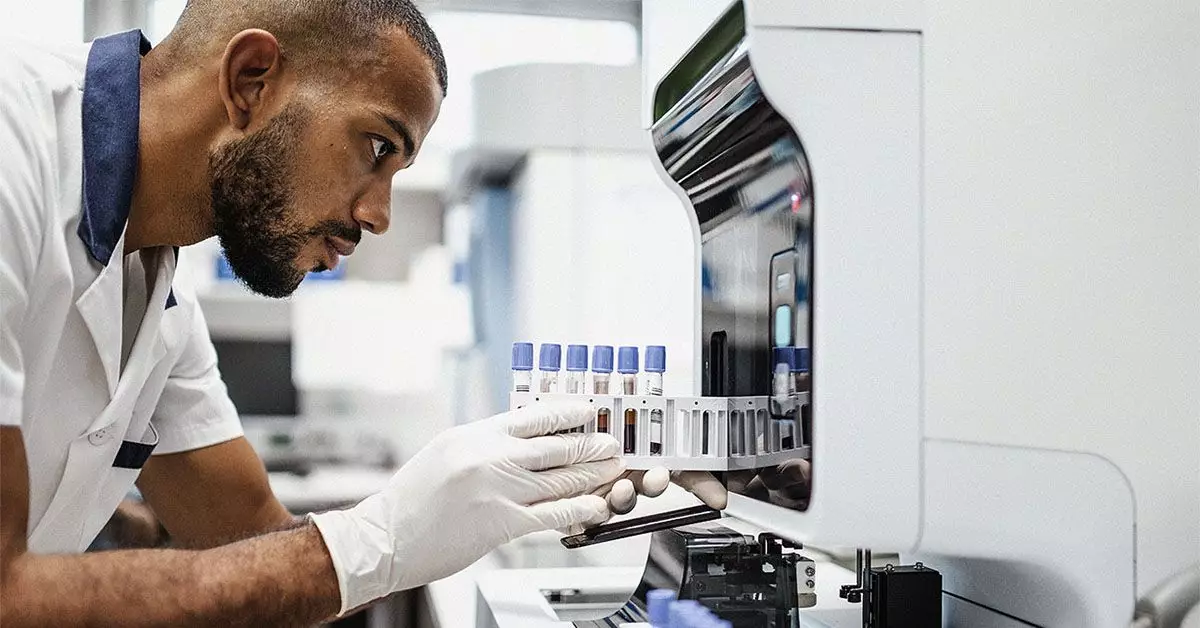Monoclonal antibodies (mAbs) have heralded a new era in medical therapeutics, showcasing an impressive ability to target specific antigens and enhance the immune system’s response to various diseases. Initially developed to address specific types of cancer, their applications have expanded dramatically, particularly in light of the COVID-19 pandemic. This article delves into the fundamentals of monoclonal antibodies, their mechanisms, therapeutic uses, and the challenges they face in the clinical setting.
Understanding Monoclonal Antibodies
Monoclonal antibodies are engineered proteins that mimic the natural antibodies produced by the immune system. Unlike polyclonal antibodies, which are derived from many different immune cells, monoclonal antibodies originate from a single clone of B cells, making them homogeneous and specific for a particular antigen. This targeting ability allows them to seek out diseased cells within the body, offering a precision that is often absent in traditional therapies. Their creation involves a sophisticated process where immune cells are fused with myeloma cells, enabling the production of large quantities of identical antibodies.
The way monoclonal antibodies operate is largely dictated by their structure and the specific antigens they are designed to target. When introduced into the bloodstream, they can bind to specific targets, such as proteins on the surface of cancer cells or pathogens like viruses. By doing so, they can either block the activity of a target (for inhibition) or recruit other components of the immune system to destroy the target (for destruction). For example, in treating cancer, monoclonal antibodies can mark tumor cells for immune system recognition or carry cytotoxic agents directly to the cancer cells, thereby minimizing damage to healthy tissues.
While oncology remains the primary field for monoclonal antibody application—showcased by drugs like trastuzumab for HER2-positive breast cancer and rituximab for certain lymphomas—their use has significantly broadened. Recent developments have seen monoclonal antibodies being utilized in the treatment of autoimmune diseases, infectious diseases (notably COVID-19), and even some chronic inflammatory conditions. In the context of COVID-19, certain monoclonal antibodies have proven effective in reducing the severity of infections, although their efficacy can vary with emerging strains of the virus.
Despite their groundbreaking potential, the use of monoclonal antibodies is not without challenges. One significant issue is cost; mAb therapies can be prohibitively expensive, leading to concerns regarding patient access and insurance coverage. Furthermore, the side effects associated with monoclonal antibodies can range from mild (such as skin reactions and flu-like symptoms) to severe (including serious allergic reactions and cardiovascular issues). The safety profile is particularly critical, given that these agents are often administered to vulnerable populations.
Moreover, there is the pressing question of their efficacy against newer pathogen strains. For instance, monoclonal antibodies initially developed against earlier strains of COVID-19 have shown diminished effectiveness against variants like Omicron. This necessitates ongoing research and potential adaptation of current therapies to maintain clinical relevance.
The landscape of monoclonal antibody research is continually evolving. Researchers are tirelessly investigating novel approaches to improve their efficacy and reduce side effects. Efforts include developing bispecific antibodies, which can simultaneously bind to multiple targets, enhancing their therapeutic potential. Authorities and research bodies are also exploring combination therapies that pair mAbs with other treatment modalities to achieve more robust outcomes.
Additionally, the ongoing exploration of “naked” versus “conjugated” antibodies presents a promising frontier. Naked mAbs amplify the immune response, while conjugated mAbs, which deliver chemotherapeutic agents or radioisotopes directly to cancer cells, represent a critical area of research in precision medicine.
Monoclonal antibodies stand as a testament to the advances of biotechnology in medicine, offering hope to countless patients afflicted by cancer, infectious diseases, and autoimmune disorders. However, the challenges surrounding access, efficacy against evolving pathogens, and safety profiles must be addressed to fully realize their potential. As researchers continue to innovate and refine these therapies, the future of monoclonal antibodies promises not only to enhance targeted treatment options but also to contribute significantly to the evolution of personalized medicine.


Leave a Reply